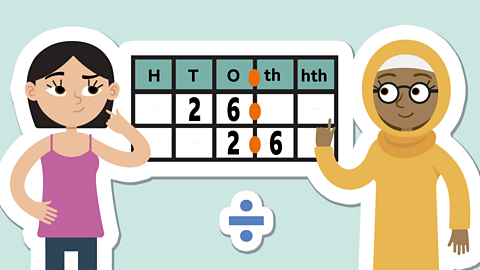Watch: Multiplication using the scaling model
Watch this video to understand multiplication using the scaling model.
What is scaling?
Scaling is when you are given information about something and then have to apply it to a smaller or larger quantity.
You use it in everyday life, but probably donÔÇÖt realise it.
Example 1
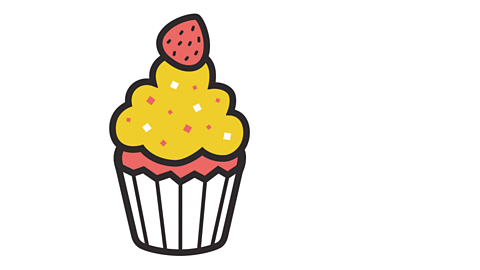
You are having a party with 30 people and you want everyone to have a cupcake.
Cupcakes are only sold in packets of 10. What do you do?
You could apply your knowledge of the 10 times table:
3 x 10 = 30
You need 3 packets of cupcakes to have enough for 30 people.

Example 2
Ellie and Bobby were at the park. Ellie saw 5 flowers but Bobby saw 5 times as many. How many flowers did Bobby see?
You can use a bar model to help you:

The bar model now clearly shows how many flowers each child saw. Ellie saw 5 and Bobby saw 5 times as many, or 5 lots of 5.
5 x 5 = 25
Bobby saw 25 flowers.
Example 3
Meera is having 7 friends over for a party. She wants to make a cake. Including herself 8 people will be eating the cake. What ingredients does she need?
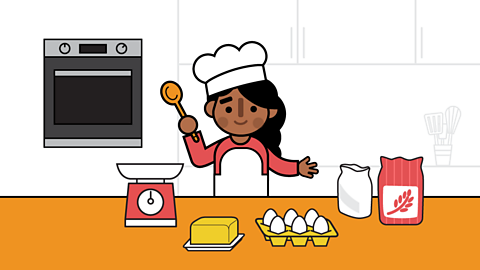
She finds a recipe for 4 people:
- 200 g of butter
- 250 g of sugar
- 300 g of flour
- 2 eggs
8 people is double 4 people. Meera needs to multiply the ingredients by a scale of 2.
200 x 2 = 400 g of butter
250 x 2 = 500 g of sugar
300 x 2 = 600 g of flour
2 x 2 = 4 eggs
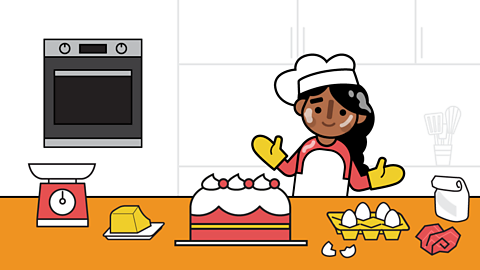
The party is a huge success and Meera wants to have another party the following week.
This time 16 people will need cake. 16 is 4 x 4.
Meera will need to multiply the recipe by a scale of 4.
200 x 4 = 800 g of butter
250 x 4 = 1000 g of sugar
300 x 4 = 1200 g of flour
2 x 4 = 8 eggs
Activity
Quiz
NEW! Play Guardians: Defenders of Mathematica - the winter update. gameNEW! Play Guardians: Defenders of Mathematica - the winter update
It's Mathematica as youÔÇÖve never seen it before, with all-new festive backgrounds and costumes. Available for a limited time only. Use your maths skills to save the day before it's too late!

More on Multiplying and dividing
Find out more by working through a topic
- count30 of 36
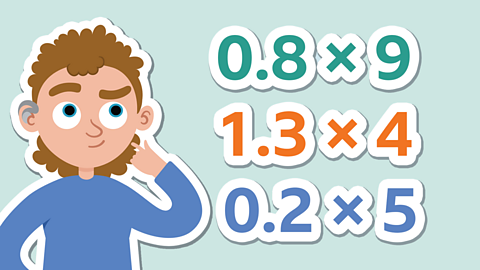
- count32 of 36
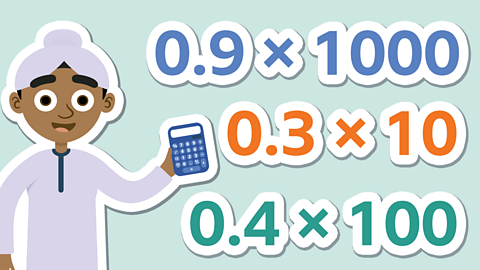
- count33 of 36
